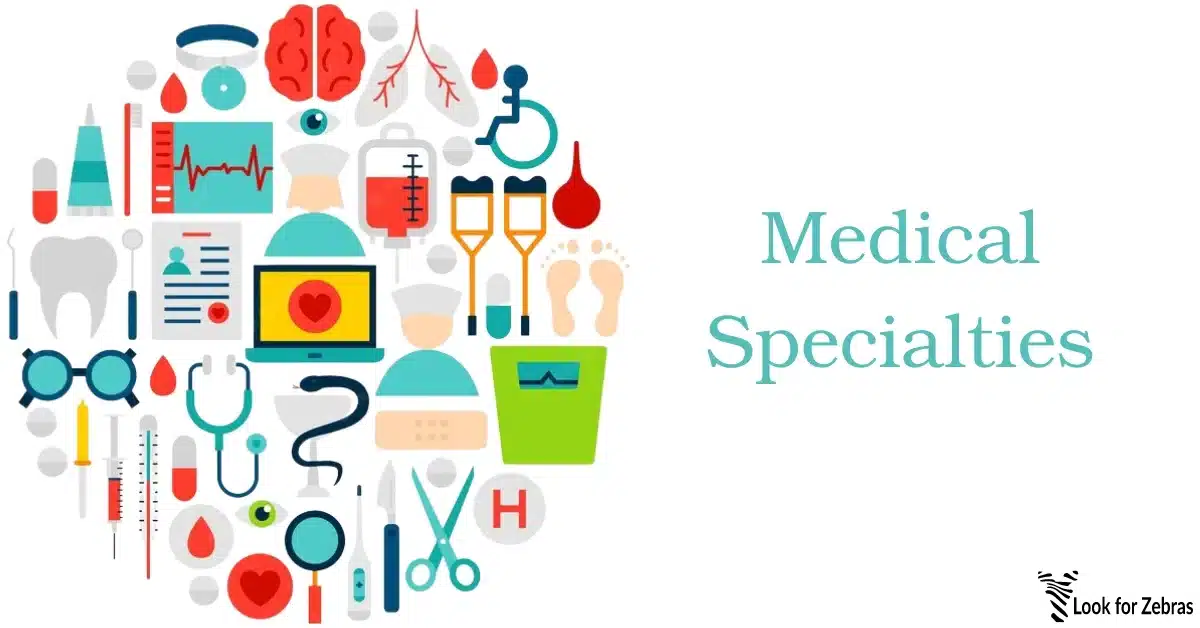Published by Lookforzebras
Navigating the world of medical specialties and subspecialties can be like deciphering a complex code. With an ever-expanding list of disciplines, it’s easy to get lost in the sea of medical jargon. But fear not, as we’re here to break down the barriers and provide you with a comprehensive guide to demystify the complex world of medical specialties.
Whether you’re a patient seeking the right specialist for your condition, a student considering a career in medicine, a healthcare professional looking to expand your knowledge, or simply a curious mind eager to explore the intricacies of the medical field, this article will equip you with the knowledge and understanding needed to navigate the vast landscape of medical specialties and subspecialties.
So, let’s embark on this enlightening journey together and unravel the mysteries behind the medical jargon, making it accessible and understandable for all.
1. Cardiology: Promoting Heart Health
Cardiology is a branch of medicine dedicated to diagnosing, treating, and preventing heart-related conditions.

Cardiologists are highly skilled professionals who specialize in managing heart diseases like coronary artery disease, heart failure, and arrhythmias. Their expertise lies in performing diagnostic tests like electrocardiograms (ECGs), echocardiograms, and cardiac catheterizations to ensure optimal heart health.
Related sub-specialties include:
- Interventional Cardiology
- Adult Congenital Heart Disease
- Cardiac Imaging
- Electrophysiology/Device Therapy
- Heart Failure Management
- Advanced Heart Failure and Transplant Cardiology
Medical Specialty Board: American Board of Internal Medicine
2. Dermatology: Nurturing Healthy Skin
Dermatology focuses on diagnosing and treating conditions affecting the skin, hair, and nails.

Dermatologists are trained to address various skin conditions, including acne, eczema, psoriasis, and skin cancer. Additionally, they perform cosmetic procedures like Botox injections, chemical peels, and laser treatments to enhance the appearance and overall health of the skin.
Related sub-specialties include:
- Dermatopathology
- Pediatric Dermatology
- Immunodermatology
- Moh’s Surgery
- Teledermatology
- Micrographic Surgery
- Dermatologic Oncology
Medical Specialty Board: American Board of Dermatology
3. Orthopedics: Restoring Mobility and Bone Health
Orthopedics deals with the musculoskeletal system, which includes bones, joints, muscles, ligaments, and tendons.

Orthopedic surgeons specialize in conditions such as fractures, arthritis, sports injuries, and spinal disorders. They utilize non-surgical interventions, surgical procedures, and rehabilitation therapies to help patients regain mobility, alleviate pain, and enhance their musculoskeletal health.
Related sub-specialties include:
- Hand Surgery
- Foot and Ankle Surgery
- Hip and Knee Replacement Surgery
- Spinal Surgery
- Trauma Surgery
- Sports Medicine
- Adult Reconstructive Orthopaedics
- Pediatric Orthopaedics
- Musculoskeletal Oncology/Orthopedic Oncology
Medical Specialty Board: American Board of Orthopaedic Surgery
4. Obstetrics and Gynecology: Caring for Women’s Health
Obstetrics and Gynecology (OB/GYN) is a medical specialty that focuses on women’s reproductive health.

OB/GYN physicians provide care throughout pregnancy, childbirth, and postpartum periods. They also diagnose and treat conditions related to the female reproductive system, such as infertility, menstrual disorders, and gynecological cancers. Regular check-ups and screenings are essential components of maintaining optimal women’s health.
Related sub-specialties include:
- Female Pelvic Medicine and Reconstructive Surgery
- Gynecologic Oncology
- Maternal-Fetal Medicine
- Reproductive Endocrinology and Infertility
- Complex Family Planning
- Critical Care Medicine
Medical Specialty Board: American Board of Obstetrics and Gynecology
5. Pediatrics: Nurturing Growing Bodies and Minds
Pediatrics focuses on the health and well-being of infants, children, and adolescents.

Pediatricians are skilled in diagnosing and treating a wide range of childhood conditions, including infections, developmental disorders, allergies, and chronic illnesses. They provide preventive care, immunizations, screenings, and age-appropriate counseling to support the healthy growth and development of children.
Related sub-specialties include:
- Adolescent Medicine
- Child Abuse Pediatrics
- Developmental-Behavioral Pediatrics
- Neonatal-Perinatal Medicine
- Pediatric Cardiology
- Pediatric Critical Care Medicine
- Pediatric Endocrinology
- Pediatric Gastroenterology
- Pediatric Hematology-Oncology
- Pediatric Infectious Diseases
- Pediatric Nephrology
- Pediatric Pulmonology
- Pediatric Rheumatology
- Pediatric Sports Medicine
- Pediatric Neurology
- Pediatric Hospital Medicine
- Pediatric Transplant Hepatology
Medical Specialty Board: American Board of Pediatrics
6. Neurology: Caring for the Nervous System
Neurology encompasses conditions affecting the nervous system, encompassing the brain, spinal cord, and peripheral nerves.

Neurologists specialize in conditions such as epilepsy, migraines, multiple sclerosis, stroke, and Parkinson’s disease. They utilize advanced diagnostic techniques, medications, rehabilitation therapies, and surgical interventions to help patients regain neurological function and improve their quality of life.
Related sub-specialties include:
- Brain Injury Medicine
- Clinical Neurophysiology
- Endovascular Surgical Neuroradiology
- Hospice and Palliative Medicine
- Neurodevelopmental Disabilities
- Neuromuscular Medicine
- Pain Medicine
- Epilepsy
- Sleep Medicine
- Vascular Neurology
- Neuro-Oncology
- Neurocritical Care
- Neuroimmunology and Multiple Sclerosis
Medical Specialty Board: American Board of Psychiatry and Neurology
7. Ophthalmology: Preserving Vision and Eye Health
Ophthalmology is dedicated to the diagnosis and management of conditions affecting the eyes and vision.
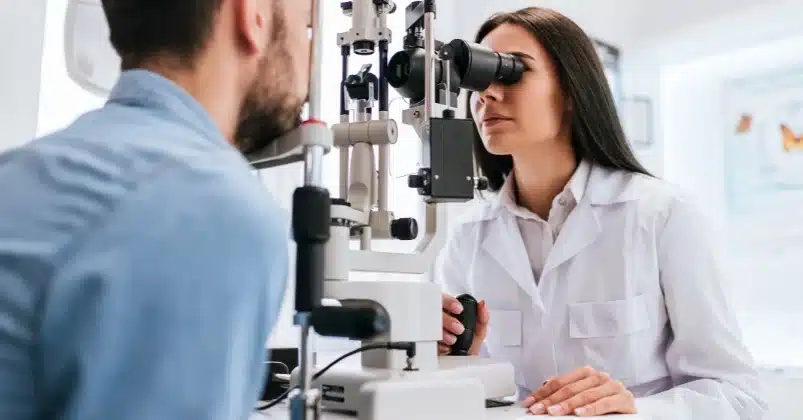
Ophthalmologists specialize in the treatment of disorders such as cataracts, glaucoma, macular degeneration, and refractive errors. They provide a range of services, including comprehensive eye exams, surgical procedures, corrective lenses, and advanced treatments to maintain optimal eye health and preserve vision.
Related sub-specialties include:
- Anterior Segment/Cornea Ophthalmology
- Glaucoma Ophthalmology
- Neuro-Ophthalmology
- Ocular Oncology
- Oculoplastics/Orbit
- Ophthalmic Plastic & Reconstructive Surgery
- Uveitis and Ocular Immunology
- Strabismus/Pediatric Ophthalmology
- Ophthalmic Pathology
- Pediatric Ophthalmology
Medical Specialty Board: American Board of Ophthalmology
8. Psychiatry: Caring for Mental Health
Psychiatry focuses on identifying, managing, and preventing mental, emotional, and behavioral disorders.

Psychiatrists assess and manage conditions such as depression, anxiety disorders, bipolar disorder, and schizophrenia. They employ a combination of therapy, medication, and lifestyle modifications to help individuals achieve mental well-being.
Related sub-specialties include:
- Addiction Psychiatry
- Administrative Psychiatry
- Child and Adolescent Psychiatry
- Community Psychiatry
- Consultation/Liaison Psychiatry
- Emergency Psychiatry
- Forensic Psychiatry
- Geriatric Psychiatry
- Intellectual Disability Psychiatry
- Mental Retardation Psychiatry
- Military Psychiatry
- Pain Medicine
- Psychiatric Research
- Psychosomatic Medicine
Medical Specialty Board: American Board of Psychiatry and Neurology
9. Radiology: Utilizing Imaging for Diagnosis
Radiology involves the use of medical imaging techniques to diagnose and treat diseases and injuries.
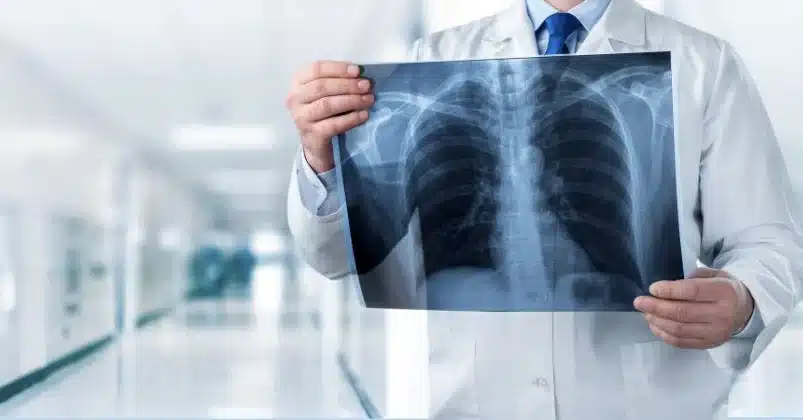
Radiologists interpret various imaging modalities such as X-rays, CT scans, MRIs, and ultrasounds to aid in the diagnosis and monitoring of conditions across multiple medical specialties. They play a crucial role in guiding treatment decisions and interventions through accurate and detailed imaging interpretations.
Related sub-specialties include:
- Diagnostic Radiology
- Interventional Radiology and Diagnostic Radiology
- Medical Physics (Diagnostic, Nuclear, Therapeutic)
- Radiation Oncology
- Neuroradiology
- Nuclear Radiology
- Pain Medicine
- Pediatric Radiology
Medical Specialty Board: American Board of Radiology
10. Urology: Caring for the Urinary System
Urology is dedicated to diagnosing, treating, and preventing disorders related to the urinary system in both males and females.
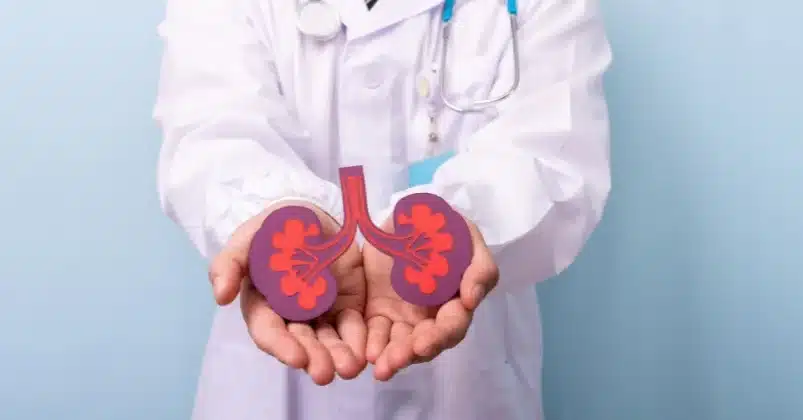
Urologists address issues such as urinary tract infections, kidney stones, prostate disorders, and urinary incontinence. They employ medical management, surgical interventions, and minimally invasive procedures to restore urinary health and improve quality of life.
Related sub-specialties include:
- Pediatric Urology
- Urologic Oncology
- Renal Transplant
- Male Infertility
- Calculi
- Female Urology
- Neurourology
Medical Specialty Board: American Board of Urology
11. Family Medicine: Comprehensive Primary Care
Family Medicine provides comprehensive and continuous healthcare for individuals of all ages, genders, and medical conditions.

Family physicians offer a broad range of services, including preventive care, routine check-ups, disease management, and referrals to specialists when needed. They emphasize long-term patient-doctor relationships, focusing on holistic care, health promotion, and disease prevention.
Related sub-specialties include:
- Adolescent Medicine
- Geriatric Medicine
- Health Care Administration, Leadership, and Management*
- Hospice and Palliative Medicine
- Pain Medicine
- Sleep Medicine
- Sports Medicine
Medical Specialty Board: American Board of Family Medicine
12. Physical Medicine and Rehabilitation: Restoring Function and Mobility
Physical Medicine and Rehabilitation (PM&R) specializes in diagnosing, treating, and rehabilitating individuals who have physical impairments and disabilities.

PM&R physicians address conditions such as stroke, spinal cord injuries, musculoskeletal disorders, and chronic pain. They employ a multidisciplinary approach that includes physical therapy, occupational therapy, assistive devices, and pain management techniques to restore function, mobility, and quality of life.
Related sub-specialties include:
- Brain Injury Medicine
- Hospice and Palliative Medicine
- Neuromuscular Medicine
- Pain Medicine
- Pediatric Rehabilitation Medicine
- Spinal Cord Injury Medicine
- Sports Medicine
Medical Specialty Board: American Board of Physical Medicine and Rehabilitation
13. Emergency Medicine: Urgent and Critical Care
Emergency Medicine focuses on the immediate evaluation and treatment of medical emergencies and life-threatening conditions.

Emergency physicians are skilled in managing various acute conditions, including trauma, cardiac emergencies, respiratory distress, and severe infections. They provide rapid assessment, resuscitation, stabilization, and appropriate referrals to other specialists for further care.
Related sub-specialties include:
- Anesthesiology Critical Care Medicine
- Emergency Medical Services
- Hospice and Palliative Medicine
- Internal Medicine/Critical Care Medicine
- Medical Toxicology
- Pain Medicine
- Pediatric Emergency Medicine
- Sports Medicine
- Undersea and Hyperbaric Medicine
Medical Specialty Board: American Board of Emergency Medicine
14. Anesthesiology: Ensuring Safe Anesthesia and Pain Management
Anesthesiology specializes in providing anesthesia, pain management, and critical care during surgical procedures and other medical interventions.

Anesthesiologists ensure patient comfort and safety by administering anesthesia, monitoring vital signs, managing pain during and after surgery, and overseeing intensive care in critical situations. They play a crucial role in ensuring a smooth and pain-free patient experience.
Related sub-specialties include:
- Critical Care Medicine
- Hospice and Palliative Care
- Pain Medicine
- Pediatric Anesthesiology
- Sleep Medicine
- Adult Cardiothoracic Anesthesiology
- Obstetric Anesthesiology
- Health Care Administration, Leadership, and Management
- Neurocritical Care
Medical Specialty Board: American Board of Anesthesiology
15. Pathology: Investigating Disease through Laboratory Analysis
Pathology entails the examination and diagnosis of diseases by analyzing bodily fluids, tissues, and organs in a laboratory setting.

Pathologists examine specimens to identify the presence and nature of diseases, help determine appropriate treatment options, and provide crucial information for patient management. They collaborate with other medical specialists to contribute to accurate diagnoses and effective treatment plans.
Related sub-specialties include:
- Pathology – Anatomic/Pathology – Clinical
- Pathology – Anatomic
- Pathology – Clinical
- Blood Banking/Transfusion Medicine
- Clinical Informatics
- Cytopathology
- Dermatopathology
- Hematopathology
- Neuropathology
- Chemical Pathology
- Forensic Pathology
- Medical Microbiology Pathology
- Molecular Genetic Pathology
- Pediatric Pathology
- Anatomical Pathology
- Immunopathology
Medical Specialty Board: American Board of Pathology
16. Plastic Surgery: Enhancing Form and Function
Plastic Surgery focuses on restoring, reconstructing, and enhancing the physical appearance and function of various body parts.
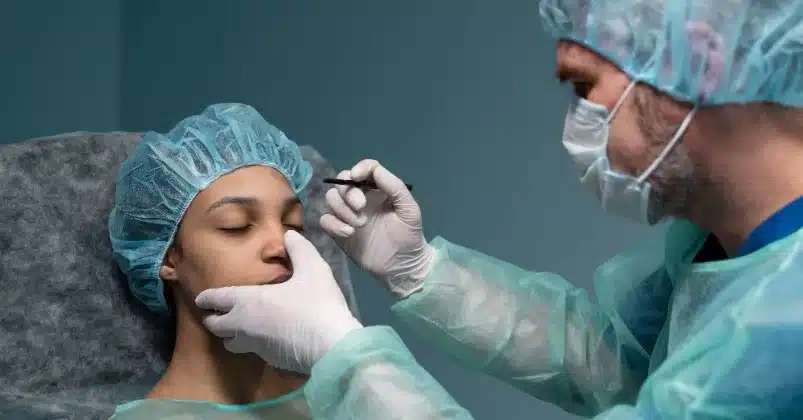
Plastic surgeons perform procedures such as cosmetic surgery, reconstructive surgery, and hand surgery. They employ advanced surgical techniques and innovative interventions to improve aesthetics, restore functionality, and boost self-confidence.
Related sub-specialties include:
- Craniofacial Surgery
- Hand Surgery
Medical Specialty Board: American Board of Plastic Surgery
17. Allergy and Immunology: Managing Allergic Conditions and Immune Disorders
Allergy and Immunology specialize in the diagnosis, treatment, and management of allergies, immune system disorders, and related conditions.

Allergists and immunologists address issues such as asthma, allergic rhinitis, eczema, immunodeficiencies, and autoimmune diseases. They employ comprehensive allergy testing, immunotherapy, medication management, and lifestyle modifications to alleviate symptoms, enhance immune function, and improve overall well-being.
Medical Specialty Board: American Board of Allergy and Immunology
18. Internal Medicine: Comprehensive Adult Healthcare
Internal Medicine offers comprehensive healthcare services to adults, with a primary focus on preventing, diagnosing, and treating a wide range of medical conditions.

Internists, also known as internal medicine physicians, offer primary care services, manage chronic diseases, and coordinate specialized care when necessary. They emphasize disease prevention, health promotion, and the management of complex medical conditions to optimize overall health and well-being.
Related sub-specialties include:
- Adolescent Medicine
- Adult Congenital Heart Disease
- Advanced Heart Failure and Transplant Cardiology
- Cardiovascular Disease
- Clinical Cardiac Electrophysiology
- Critical Care Medicine
- Endocrinology, Diabetes, and Metabolism
- Gastroenterology
- Geriatric Medicine
- Hematology
- Hospice and Palliative Medicine
- Infectious Disease
- Interventional Cardiology
- Medical Oncology
- Nephrology
- Neurocritical Care
- Pulmonary Disease
- Rheumatology
- Sleep Medicine
- Sports Medicine
- Transplant Hepatology
Medical Specialty Board: American Board of Internal Medicine
19. Medical Genetics and Genomics: Understanding Inherited Conditions
Medical Genetics and Genomics is a specialized field that focuses on the diagnosis, management, and counseling of individuals who have genetic disorders and inherited conditions.

Medical geneticists evaluate family histories, perform genetic testing, and provide guidance on the risks, management, and treatment options for genetic conditions. They play a crucial role in assisting individuals and families in comprehending and managing genetic disorders.
Related sub-specialties include:
- Clinical Biochemical Genetics
- Clinical Genetics and Genomics (MD)
- Laboratory Genetics and Genomics
- Medical Biochemical Genetics
- Molecular Genetic Pathology
Medical Specialty Board: American Board of Medical Genetics and Genomics
20. Nuclear Medicine: Utilizing Radiopharmaceuticals for Diagnosis and Treatment
Nuclear Medicine utilizes radiopharmaceuticals, which are radioactive substances, for both diagnostic imaging and therapeutic purposes.
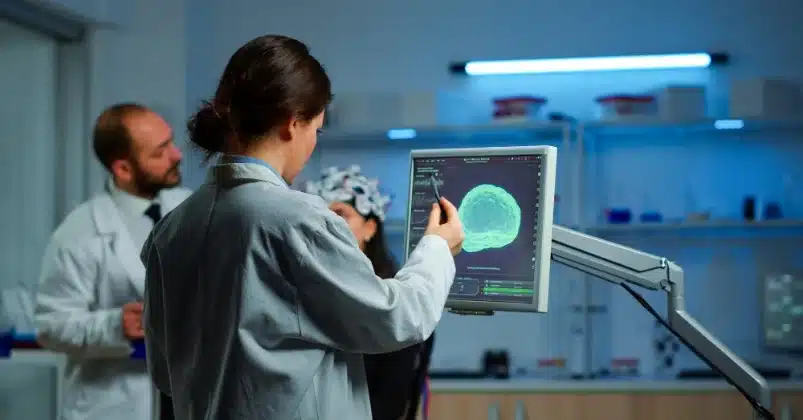
Nuclear medicine physicians perform imaging studies to evaluate organ function, detect diseases, and guide treatment planning. They administer radiopharmaceuticals and use advanced imaging technologies, such as PET scans and SPECT scans, to provide valuable insights into various medical conditions.
Medical Specialty Board: American Board of Nuclear Medicine
21. Preventive Medicine: Focusing on Disease Prevention and Health Promotion
Preventive Medicine emphasizes disease prevention, health promotion, and the management of risk factors to improve overall population health.

Preventive medicine physicians assess individual and community health needs, develop strategies for disease prevention and health promotion, and implement interventions to reduce the incidence and impact of diseases. They play a critical role in promoting healthy behaviors, immunizations, screenings, and public health initiatives.
Related sub-specialties include:
- Aerospace Medicine
- Occupational Medicine
- Public Health and General Preventive Medicine
- Addiction Medicine
- Clinical Informatics
- Health Care Administration, Leadership, and Management*
- Medical Toxicology
- Undersea and Hyperbaric Medicine
Medical Specialty Board: American Board of Preventive Medicine
22. Surgery: Providing Surgical Interventions for Various Medical Conditions
Surgery involves the performance of operative procedures to treat or alleviate medical conditions through manual or instrumental techniques.

Surgeons specialize in various surgical subspecialties, such as general surgery, orthopedic surgery, cardiovascular surgery, and neurosurgery. They diagnose, manage, and perform surgical interventions, using the latest techniques and technologies to provide optimal patient care.
Related sub-specialties include:
- Colon and Rectal Surgery
- General Surgery
- Surgical Critical Care
- Gynecologic Oncology
- Plastic Surgery
- Craniofacial Surgery
- Hand Surgery
- Neurological Surgery
- Endovascular Surgical Neuroradiology
- Ophthalmic Surgery
- Oral and Maxillofacial Surgery
- Orthopaedic Surgery
- Adult Reconstructive Orthopaedics
- Foot and Ankle Orthopaedics
- Musculoskeletal Oncology
- Orthopaedic Sports Medicine
- Orthopaedic Surgery of the Spine
- Orthopaedic Trauma
- Pediatric Orthopaedics
- Otolaryngology
- Pediatric Otolaryngology
- Otology Neurotology
- Pediatric Surgery
- Neonatal
- Prenatal
- Trauma
- Pediatric Oncology
- Surgical Intensivists – specializing in critical care patients
- Thoracic Surgery
- Congenital Cardiac Surgery
- Thoracic Surgery-Integrated
- Vascular Surgery
Medical Specialty Board: American Board of Surgery
23. Otolaryngology: Treating Conditions of the Ear, Nose, and Throat
Otolaryngology, also recognized as Ear, Nose, and Throat (ENT) medicine, specializes in diagnosing and treating conditions that affect the head and neck.

Otolaryngologists address issues such as sinusitis, hearing loss, throat infections, voice disorders, and head and neck cancers. They provide medical and surgical interventions, including procedures such as tonsillectomy, rhinoplasty, and cochlear implants, to improve ear, nose, and throat health.
- Otolaryngology – Head and Neck Surgery
- Complex Pediatric Otolaryngology
- Neurotology
- Plastic Surgery Within the Head and Neck
- Sleep Medicine
Medical Specialty Board: American Board of Otolaryngology – Head and Neck Surgery
You know, in medical school, you get your basic education, but what’s really interesting is how residency programs come into play. Each medical specialty has its own unique residency length, so doctors spend varying amounts of time honing their skills in their chosen field. It’s like a specialized training program tailored to their specific area of expertise.
Conclusion
The field of medicine encompasses numerous specialties, each playing a vital role in promoting the overall well-being of individuals. From cardiology to psychiatry, these medical experts ensure that patients receive specialized care tailored to their specific needs. Understanding the roles and responsibilities of various medical specialties helps individuals make informed decisions about their healthcare and seek appropriate medical attention when necessary.
Remember, seeking professional medical advice from the relevant specialist is essential for accurate diagnosis and personalized treatment.
FAQs
A: A medical specialty is a specific field of medicine that focuses on the diagnosis, treatment, and prevention of particular diseases, conditions, or areas of the body.
A: There are various medical specialties, and the exact number can vary depending on the healthcare system and classification used. The list commonly includes specialties such as cardiology, dermatology, neurology, oncology, pediatrics, psychiatry, radiology, and many more.
A: Medical specialties differ based on the specific diseases, conditions, or organs they focus on. Each specialty requires specialized knowledge, training, and skills to provide comprehensive care within their respective areas of expertise.
A: Medical specialties play a crucial role in healthcare by providing specialized knowledge and skills to diagnose, treat, and prevent specific medical conditions. They contribute to a multidisciplinary approach to patient care and collaborate with other specialties when necessary.
A: Becoming a specialist typically involves completing medical school followed by residency training in a specific specialty. After residency, further specialization can be pursued through fellowship training programs, which provide additional focused education and experience.
A: Yes, some physicians choose to specialize in more than one field through dual or multiple residencies or fellowships. This allows them to have expertise in multiple areas and provide comprehensive care to patients with complex medical conditions.
References
https://www.sgu.edu/blog/medical/ultimate-list-of-medical-specialties/#ophthalmology
https://en.wikipedia.org/wiki/Medical_specialty
https://www.aucmed.edu/about/blog/a-complete-list-of-medical-specialties-and-subspecialties
https://www.webmd.com/health-insurance/insurance-doctor-types
https://www.dr-bill.ca/blog/career-advice/complete-list-of-doctor-specialties-medical-subspecialties
https://www.abms.org/member-boards/specialty-subspecialty-certificates/

